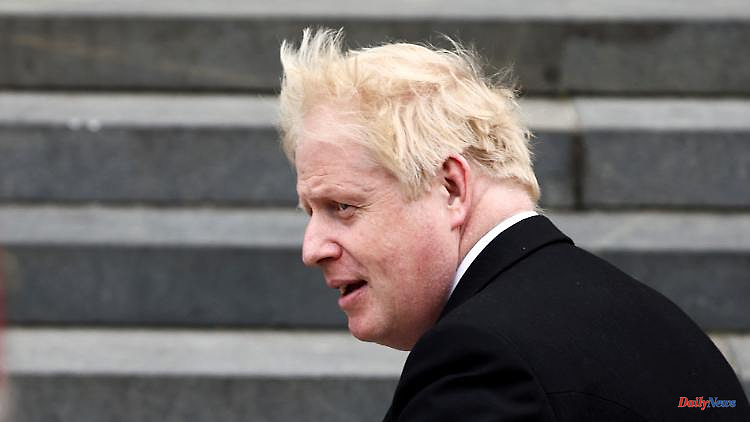Boris Johnson is the first British Prime Minister to break the law during his tenure. The scandal surrounding party parties during the lockdown could end his political career. If the party members express their distrust in him, the only option is to resign.
British Prime Minister Boris Johnson, who has come under pressure from the "Partygate" scandal and other scandals, has to face a vote of no confidence from his Conservative Party. The responsible party committee announced on Monday that the necessary number of corresponding applications from Tory MPs had been reached. Johnson's spokesman said the prime minister welcomed the vote scheduled for the evening as an opportunity to put the affair behind and "look ahead".
Johnson is also increasingly criticized in his party because of the affair about parties at the seat of government during the corona lockdown. According to the party statute, at least 54 and thus 15 percent of the 359 Tory MPs in the House of Commons must vote in favor of a vote of no confidence in letters to the responsible Conservative committee. This has now happened, said committee chairman Graham Brady, without giving exact figures.
He informed Johnson on Sunday after the Queen's 70th Jubilee celebrations ended, Brady said. According to him, some colleagues had dated their letters after the celebrations. The vote was scheduled for Monday evening from 6 p.m. (7 p.m. CEST).
For a vote of no confidence to succeed, more than 50 percent of Tory MPs must vote in favor of this step in a secret ballot. In that case, the 57-year-old would be obliged to resign as party leader and thus indirectly also as head of government. He is no longer allowed to stand for the subsequent election of the next head of government. Should Johnson win, according to internal party rules, no further votes of no confidence are possible for a year.
For a long time after his clear election victory in 2019, all affairs and problems seemed to roll off Johnson. He initially benefited from the Tories' lack of a suitable successor and later from the Ukraine war. But more and more revelations about the parties at the seat of government during the corona lockdown and the high cost of living in the country increasingly weakened his position.
Johnson was fined for attending one of the celebrations - making history the first sitting prime minister to break the law. The final straw was the damning conclusion of an investigative report by senior civil servant Sue Gray into Downing Street party excesses, for which Gray blamed the government.
In recent polls, a clear majority of citizens believe Johnson lied about Partygate and should resign. He was publicly booed during the Queen's Jubilee celebrations.
Recently, an increasing number of Conservative MPs have expressed doubts about Johnson's leadership skills. He repeatedly apologized in Parliament, but refused to resign.
His spokesman said Johnson saw the vote as an opportunity to "end months of speculation." It allows the government to "draw a line" and take care of the real concerns of the people. An appearance by the prime minister in front of his parliamentary group was planned for the afternoon.
Opposition leader Keir Starmer called on the Conservatives to remove Johnson from office. "He's lost the country's trust, that's pretty clear," the Labor leader told LBC radio.
Conservative MP John Penrose, meanwhile, resigned as Johnson's anti-corruption commissioner. The reason he gave was that Johnson had violated the code of conduct for ministers. In contrast, dozens of MPs and ministers publicly backed Johnson, including Secretary of State Liz Truss and Secretary of Health Sajid Javid.












